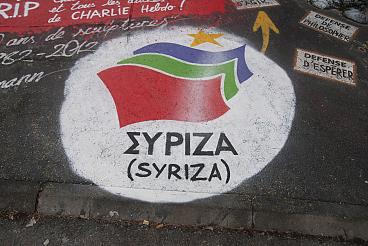Keep an eye on Greece
Keep an eye on Greece

Things were quiet for a while around Greece, after Tsipras with his back to the wall promised to accept Brussels’ diktats. Although he tried with flanking measures to soften austerity’s most painful aspects, he did in general stick to the agreements. Until, that is, they arrived at the destruction of the pensions system. On this Tsipras stood firm. This led to a conflict with the Troika which has now dragged on for months. The Troika has shown itself before to be insensitive to the plight of people already under pressure.
Tomorrow the planned negotiations begin on what happens next in Greece. On the agenda will be, whatever else, a further tranche of €5 bn., with which Greece will be assisted in meeting its obligations to the European Central Bank and the IMF. Greece will then receive a loan to offset its existing debts. This is of course not a structural solution and the IMF must therefore discuss with others, especially Germany, realistic debt relief.
German Finance Minister Wolfgang Schäuble had made it known that he was in no hurry to lighten Greece’s debt burden. That’s in any case not a popular idea in Germany, but Schäuble believes that such a measure should not come before the British referendum and a possible Brexit, because it could go badly with the UK electorate.
In order now to put pressure on both Greece and the EU, the IMF is threatening to quit the negotiations altogether. Such a move would lead to immediate instability in Greece; in short, chaos would return. Who knows, perhaps Dutch Prime Minister Mark Rutte might come to the aid of his Finance Minister Jeroen Dijsselbloem (who also happens to chair the Eurogroup), and energetically tackle the matter. More strength to their elbow, but I don’t have much confidence in them: for the time being, the stalemate seems complete.
- See also:
- Dennis de Jong
- Europe
